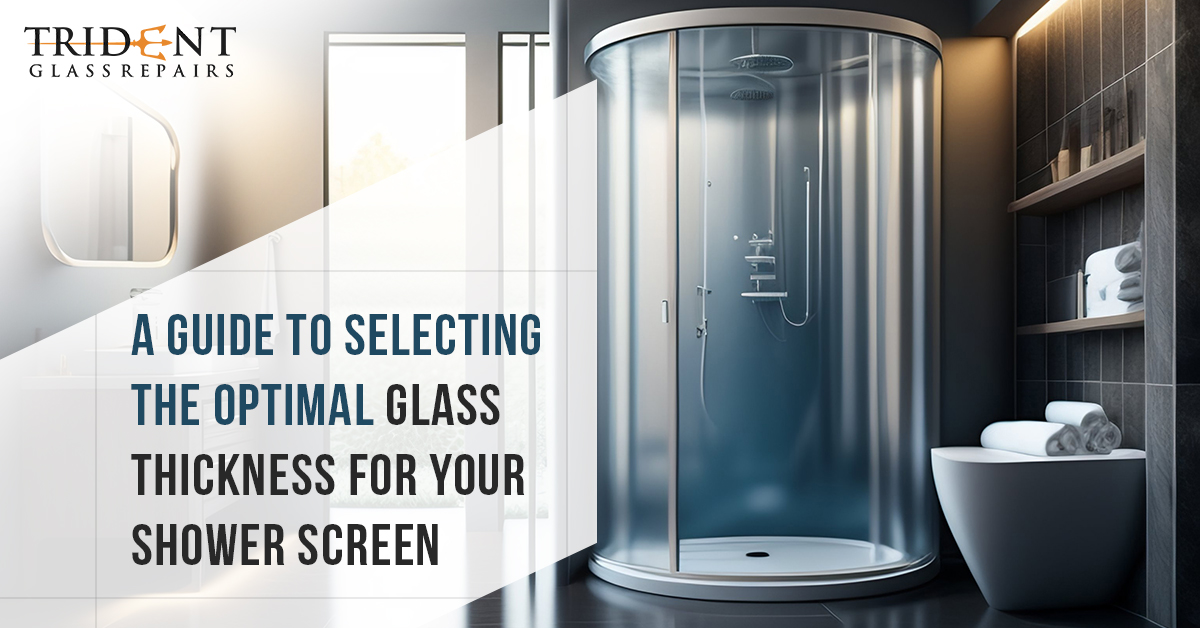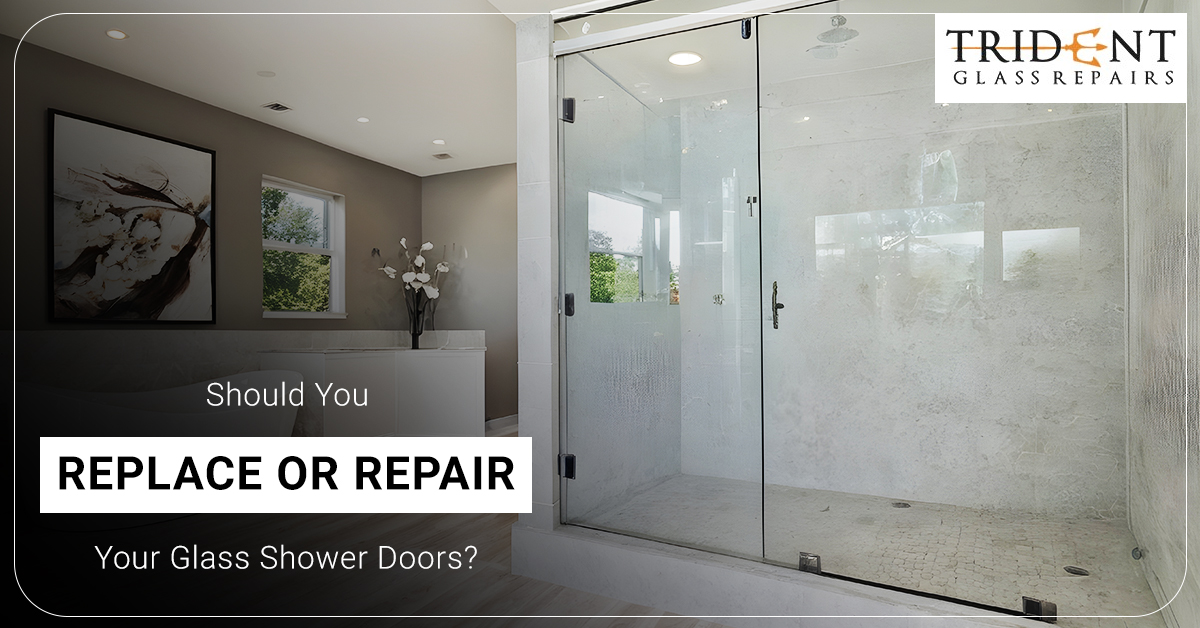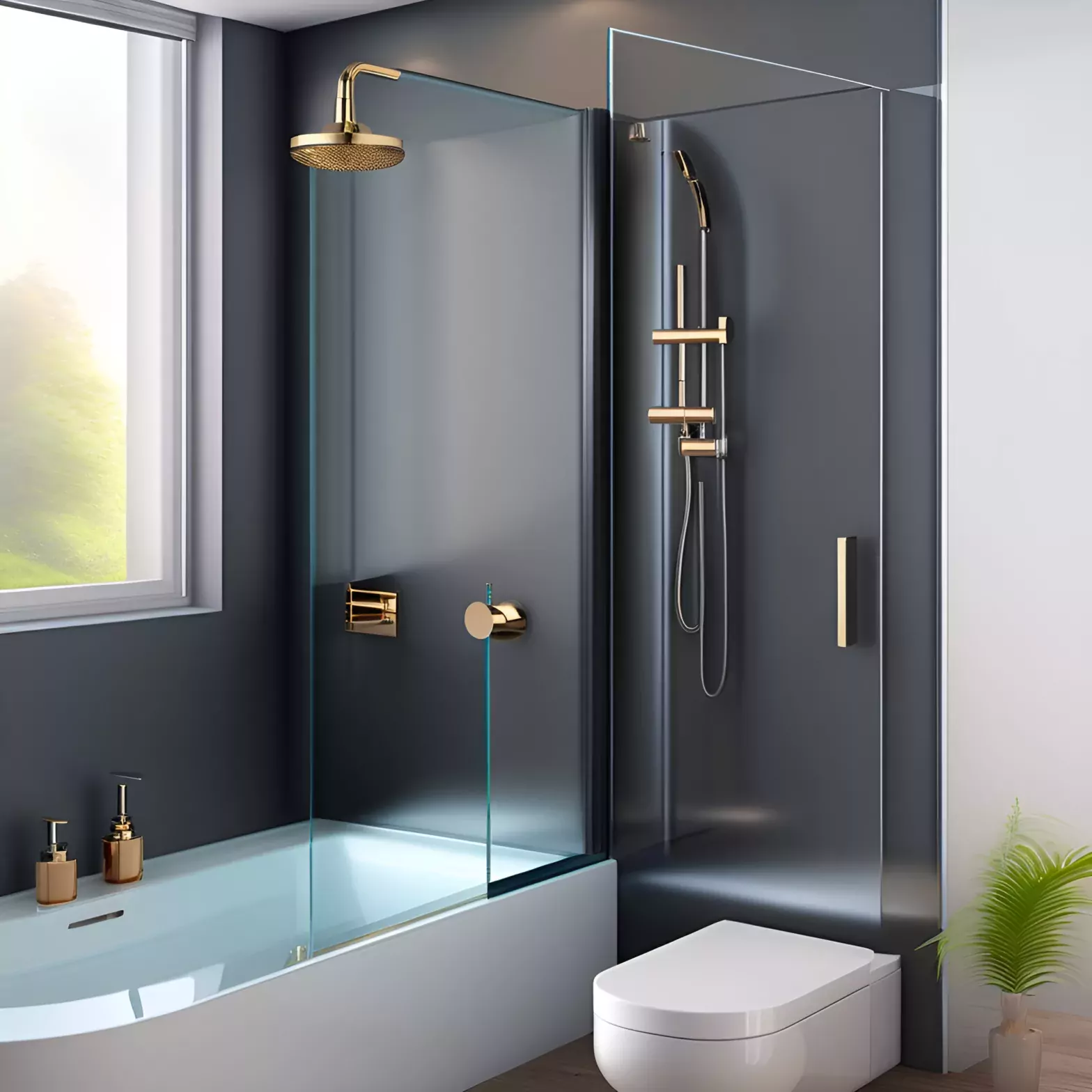Your everyday shower is intended to be a revitalizing breakout, but a defective shower display screen can transform it into a frustrating ordeal. Glass shower enclosures provide an exceptional aesthetics that may elevate your shower area from ordinary to spa-like elegance. The most common shower screen problems include the serenity of your shower area leading to more expensive problems. However, the standard troubles encountered with glass shower enclosures — and what steps can you take to resolve them? Accidents and issues can arise regardless of the several design advantages of the type of shower enclosure. In this blog, we can explore the common troubles affecting glass shower screens and the underlying causes of these challenges by providing insights on how to perceive and address these shower screens repairs significantly. Hard water stains: Hard water stains are mineral deposits that are left back when water evaporates on surfaces like glass shower doors or faucets. These stains seem like white, cloudy spots that can be hard to remove with an ordinary cleaning process. The minerals including calcium and magnesium are liable for these stains and stick to surfaces and increase over the years. Soap Scum Buildup: Soap scum buildup is not an unusual issue in bathrooms, specifically on glass shower enclosures. It occurs whilst cleaning soap residue combines with minerals in water to shape a cussed film on surfaces. This buildup could make glass look dull, cloudy, and challenging to clean. Leaking seals: Leaking seals in glass shower enclosures may be an irritating hassle, mainly due to water escaping onto your toilet ground and potentially causing damage. The primary reason for leaking seals is regularly put on and tear over time, in which the rubber or silicone seals around the door or panels degrade or end up misaligned. Mold And Mildew Growth: Mold and mildew growth in the bathroom, particularly on and around shower surfaces, is not unusual results from damp conditions. These fungi thrive in wet environments and might spread quickly if not addressed. Mold appears as darkish spots or patches, while mildew is generally white or gray. Besides being ugly, mold and mildew can contribute to respiration problems and hypersensitive reactions. Scratches On Glass: Scratches on glass can make the glass look like its appearance and compromise its readability. Abrasive cleaning with hard substances, contact with complex objects or mis- handling often cause those scratches. While minor scratches won’t affect functionality, they can look unpleasant. Frame Corrosion (Metal Frames): Frame corrosion in metallic-framed shower enclosures can be a persistent problem due to extended exposure to moisture and humid situations. Over time, this exposure can cause steel frames to corrode, leading to rust and deterioration. Corrosion influences the body’s appearance and may compromise its structural integrity, doubtlessly causing leaks or instability. Hinges Or Rollers Malfunctioning: When hinges or rollers on a shower enclosure malfunction can disrupt the door’s clean operation, making it difficult to open or close. This trouble may additionally arise due to dirt or particles buildup within the hinges or rollers, causing them to grow stiff or caught. Additionally, wear and tear through the years can lead to deterioration of these components, affecting their functionality. Glass Shattering: Glass shattering in a shower enclosure may be a startling and concerning problem. It can occur because of various factors, pressure from an unsuitable set-up, effects from heavy objects, or inherent weaknesses inside the glass. Tempered glass is typically utilized in shower enclosures because it is designed to interrupt into tiny, much less risky portions if shattered. However, any glass can be destroyed during intense instances. To prevent glass shattering, ensure proper shower screen replacement through skilled experts. Also avoid slamming doorways, and use warnings with heavy items close to the glass. Regular inspections for signs of pressure or risk substance can mitigate this chance. Discoloration Of Silicone Seals: The discoloration of silicone seals in shower screen enclosures can detract from the cleanliness of your bathroom. Over time, silicone seals may additionally flip yellow or brown because of exposure to moisture, cleaning soap scum, and different environmental elements. This discoloration is now not the most effective influence on the aesthetic enchantment but can also imply the degradation of the silicone material. To resolve this problem, remember to replace discolored seals with new ones to repair the appearance and effectiveness of your shower enclosure, preventing similar deterioration and keeping a fresh look. Improper Installation: Improper installation of a shower screen enclosure can result in numerous challenges that compromise functionality and safety. Common issues that bubble up from terrible installation include misalignment of panels or doorways, insufficient center locks leading to leaks, and instability of fixtures. Improperly hooked up bathe enclosures will also be more at risk of glass breakage or structural screw-ups through the years. Addressing set-up troubles is vital to prevent similar problems and ensure the enclosure’s durability. Hiring skilled experts to set up and adhere to producer suggestions can mitigate these risks and ensure a secure, well-functioning glass shower enclosure. Maintaining a properly functioning and aesthetically appealing glass shower enclosure requires vigilance in figuring out and addressing common problems. From tough water stains and cleaning soap scum buildup to leaking seals and mildew increase, these issues can disrupt the tranquility of your shower area. Proper set-up is paramount because it guarantees the structural integrity and protection of the enclosure over time. By directly addressing installation problems and engaging in everyday renovation, which includes cleaning and inspecting seals and glass surfaces, you could hold the beauty and functionality of your glass shower enclosure for future years. Invest in quality shower screen replacement Sydney from Trident Glass Repairs for proactive care and a spa-like experience.
Understanding Common Challenges with Glass Shower Enclosures












